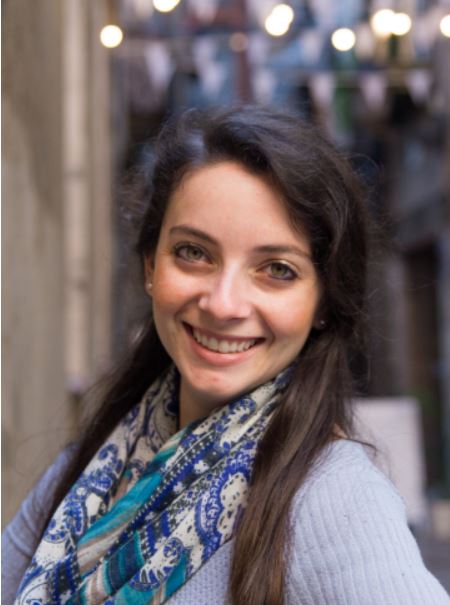
Rachael Wilks-McCann is a guidance counselor for Stride K12 Private Academy, which accommodates nontraditional students through remote learning. In the Washington area, the academy serves Friendship Public Charter School Online and Virginia Virtual Academy. Stride was able to adapt to the COVID-19 pandemic without a drop in student performance because remote learning is second nature for most of the academy’s students.
As an academic success coach and counselor for the school since 2018, Wilks-McCann works closely with various students, including theater and professional sports prodigies, medically homebound students, children of divorce with parents in different states and military families.
Q: Can you describe your background for us?
A: I have an education background. I was a classroom teacher in Vietnam and Florida State University. (At Florida State), I worked for intensive studies where international students came through if they didn’t place high on their English exam. We take care of them (and get them up to par).
Q: Can you speak to the idea of online schooling as opposed to virtual schooling during the pandemic?
A: Stride has been doing online education for the past 20 years, so we’ve accumulated a good (amount of knowledge from) experience. We’ve been training teachers for the last 20 years. In everyone’s emergency scramble for school districts to adapt during COVID, those school districts have seen a learning loss, and not a learning loss for online schools.
Q: What’s most important for online success?
A: The top things are parents or learning coaches (and guardians) instead of “Gosh, I can just plop my child in front of the computer.” There’s a different kind of relationship when you’re the online learning coach or you’re the student wishing for success.
Q: You’re saying in online learning, there’s a greater need for a parent or learning coach. Is that correct?
A: You have to follow up to make sure there’s a greater need for a school. If they’re (the kids) not doing their schoolwork and (their grades) are dropping, the parents have access to that 24/7.
Q: Do the athletes and theater prodigies tend to be equally as gifted in school, or do they generally not have the time to approach that level of excellence since they are focusing so much on sports or theater?
A: They tend to do very well—the students who are high-performing in these other areas. They tend to perform very well above their expectations. Part of that is the organization they’re working with requires them to maintain a certain grade point average, although I’m not sure if that’s the case for theaters. Part of that is that they’re just motivated kids, and they take everything that’s thrown at them head first.
We have various students who have rigorous training schedules that require students to do their schooling during nontraditional hours. The flexibility of our program affords students the opportunity to do just that, as well as to accommodate any travel team obligations, etc. An example that comes to mind is an ice skater who trains from 7 a.m. to 1 p.m. and does schooling afterward, typically well into the evening. This intensive training would not be possible for a student enrolled in a traditional system.
Q: Can you explain your job as a dual enrollment coach?
A: The dual enrollment coordinator is something that I coordinate in partnership with the school counselor for our student body, but it’s not my primary function. As an Academic Success Coach, I wear a lot of hats—a lot of it is helping new students and parents adjust to their new online school. Once onboarded, I monitor their progress and reach out to struggling students to provide some additional one-to-one academic support. I also do course planning and graduation planning and help students select courses that will get them to the finish line and are in alignment with their college and career goals post-graduation. With my dual enrollment coordinator hat, I connect qualified students with opportunities to take college courses while still in high school, working with students and parents to select appropriate classes that support their short- and long-term goals.
Q: What types of sports do your student-athletes play?
I’ve got ice skating, slalom canoeing, tennis and soccer.
Q: I notice you’re not mentioning the big four U.S. sports. Is it because they have existing pipelines for those sports?
A: We do get kids ready for the NCAA (in particular soccer), but that’s right, a lot of those individual sports that we see have pipelines. We usually see individual sports.
Q: Is it inherently exciting to talk to people who might win a medal or an NCAA championship?
A: I would say what I do on my end is to see them differently. My job is to get them to see the kid and the routine day to day rather than a performative space.
Q: Do your students ever invite you to attend their events?
A: I have been invited to see two things. Unfortunately, I haven’t been able to do so because they’re touring. I was invited to see something that was local. But unfortunately I was out of town.
I think people think you can’t build meaningful relationships with teachers and counselors virtually. It’s really special to be invited.
Q: Is there a start to the new year in an online school?
A: In general, they have courses twice a year. We have a lot of different start dates in August, September and October, and we have options that start in February and March.







